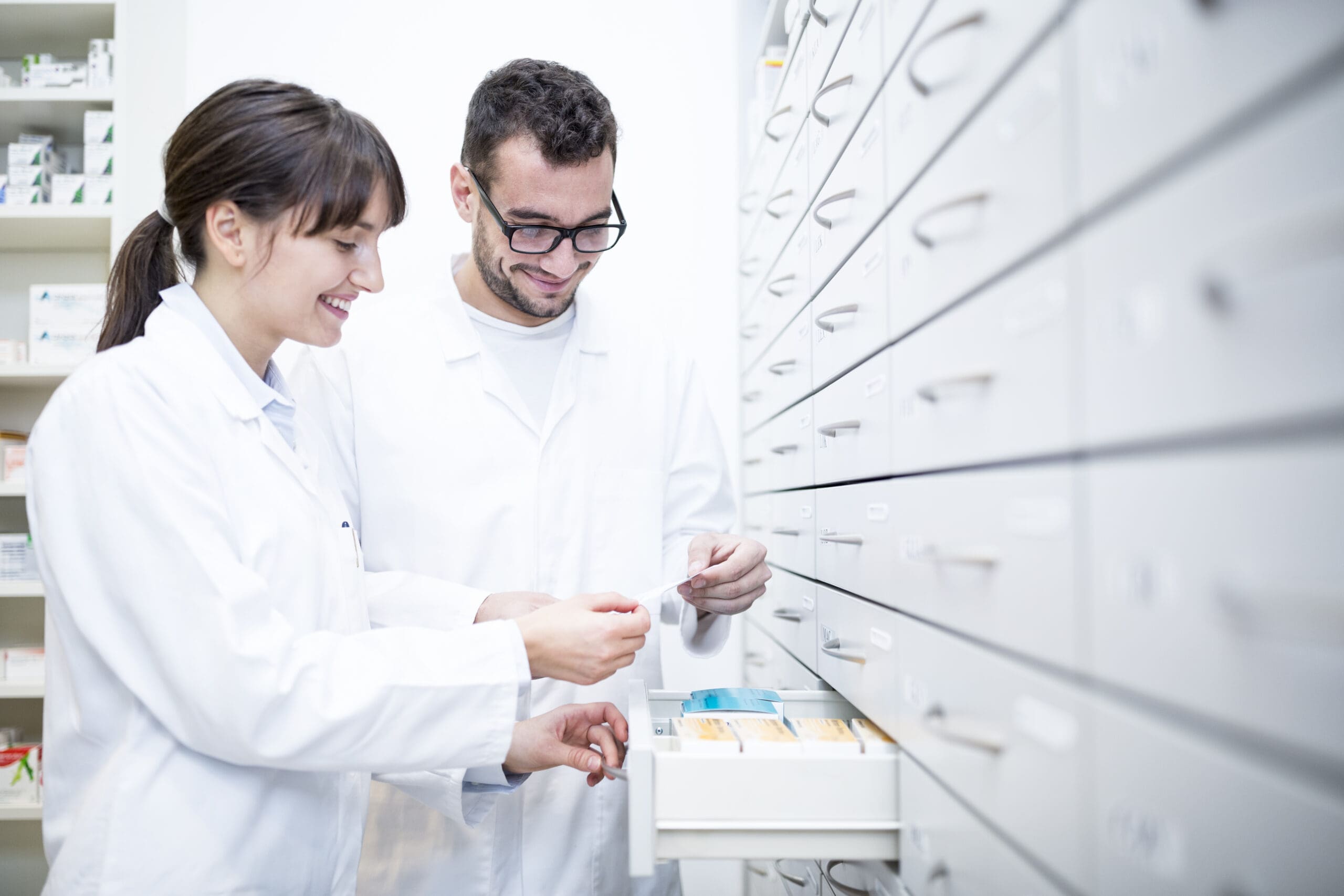
A Brief Introduction to Pharmacology: Understanding the World of Medicines
Table of Contents
Pharmacology is the study of drugs and their effects on living organisms. It is a multidisciplinary science that combines knowledge from various fields, such as chemistry, biology, biochemistry, and physiology, to understand the effects of drugs on the body. Pharmacology is an essential part of modern healthcare, and it has a key role in developing new drugs, improving patient outcomes, and advancing medical science.
This article provides a guide to understanding pharmacology, including the history of pharmacology, the role of pharmacology in modern healthcare, and pharmacokinetics and pharmacodynamics.
A Journey Through the World of Medicines
Pharmacology has a long and rich history that dates back to ancient times. The origins of pharmacology can be traced back to the use of plants and herbs for medicinal purposes. Over time, pharmacology has evolved into a complex and sophisticated science that is essential for developing new drugs and improving patient outcomes.
The fundamental concepts of pharmacology include drug discovery and development, drug delivery systems, drug interactions, and drug safety. Drug discovery and development involve the identification of new drug targets, the synthesis and testing of new drugs, and the optimization of drug efficacy and safety.
Drug delivery systems involve the development of different drug delivery systems, including oral, intravenous, and transdermal delivery, to ensure that the drug is delivered to the right place at the right time. Drug interactions involve the study of how drugs interact with each other and with other substances in the body, including food, alcohol, and other drugs.
Some of the most important drugs in history and their impact on healthcare include antibiotics, chemotherapy, insulin, and vaccines. Antibiotics revolutionized the treatment of bacterial infections, chemotherapy increased the survival rates of cancer patients, insulin has transformed the management of diabetes, and vaccines have prevented the spread of infectious diseases.
Understanding the Action of Drugs
Imagine pharmacology as a bridge connecting chemistry and biology. On one side, you have chemicals with unique properties, and on the other, you have complex living systems like our bodies. Pharmacology studies how these chemicals, known as drugs, interact with our bodies, producing specific effects. It covers everything from understanding how a drug works on a cellular level to how it travels through the body and is eventually eliminated.
The Two Faces of Pharmacology
There are two main aspects of pharmacology, pharmacokinetics and pharmacodynamics, which are essential for understanding drug efficacy and safety.
- Pharmacodynamics: This branch focuses on “what the drug does to the body.” It explores how drugs interact with molecules like enzymes and receptors, ultimately leading to their therapeutic effects or side effects.
- Pharmacokinetics: This branch focuses on “what the body does to the drug.” It examines how the body absorbs, distributes, metabolises (breaks down), and excretes drugs. Understanding these processes is essential to determine the appropriate dosage and ensure the drug reaches its target site effectively.
Factors that affect drug efficacy and safety include dose, route of administration, and patient characteristics. Understanding pharmacokinetics and pharmacodynamics can help healthcare professionals optimize drug dosages and improve patient outcomes.
It’s important to remember:
- All drugs have risks, even legal ones.
- Using any drug irresponsibly can be dangerous.
- If you have questions or concerns about drugs, talk to a doctor, pharmacist, or another trusted adult.

Why Is Pharmacology Important?
Pharmacology is an essential part of modern healthcare. Pharmacologists work closely with physicians and other healthcare professionals to develop new drugs, optimize drug dosages, and improve patient outcomes.
Its vital role in healthcare:
- Drug discovery and development: By understanding how drugs work, scientists can design new medications with fewer side effects and improved efficacy.
- Safe and effective medication use: Pharmacological knowledge helps healthcare professionals prescribe the right medication at the right dose, considering individual factors and potential interactions with other drugs.
- Understanding drug interactions: Some drugs can interact with each other, potentially causing harmful effects. Pharmacology helps predict and prevent these interactions.
- Developing personalised medicine: By understanding how individual genetic variations affect drug response, pharmacology opens doors to personalised treatments tailored to each patient.
Exploring the World of Drugs
The process of developing a new drug is a long and complex one. It involves several stages, including drug discovery, preclinical testing, clinical trials, and regulatory approval.
Stage 1: Drug Discovery
Drug discovery is the first stage in the process. It involves identifying a target molecule that is involved in a disease process and developing a drug that can interact with it. This stage can take several years and involves a significant investment of time and resources.
Stage 2: Preclinical Testing
Once a potential drug has been identified, preclinical testing begins. This stage involves testing the drug in animals to determine its safety, efficacy, and potential side effects. This stage is critical in ensuring that the drug is safe for human use. It may also help identify any potential issues that may arise during clinical trials.
Stage 3: Clinical Trials
Clinical trials are the next stage in the process. These trials involve testing the drug in humans to determine its safety and efficacy. They are normally conducted in three phases, with each phase tailored to answer specific questions about the drug’s safety and effectiveness.
Stage 4: Regulatory Approval
Finally, regulatory approval is required before a drug can be marketed and sold. This involves obtaining approval from regulatory agencies such as the Food and Drug Administration (FDA). The FDA reviews data from preclinical and clinical trial phases to ensure that the drug is safe and effective for human use.
The drug development process involves a significant investment of time and resources, and thus, it can take several years. However, the benefits of regulatory approval are significant. Approved drugs can be marketed and sold, providing patients with access to new treatments that can improve their health and quality of life.
Who Studies It?
Several groups of people are involved in studying and using pharmacology:
1. Pharmacologists: These are scientists with advanced degrees (usually a PhD or equivalent) who dedicate their careers to researching and understanding the mechanisms of drugs. They may work in academia, pharmaceutical companies, government agencies, or contract research organisations. Pharmacologists can specialise in various areas, such as:
- Pharmacodynamics: Studying how drugs interact with biological targets.
- Pharmacokinetics: Examining how drugs move through the body and are eliminated.
- Toxicology: Assessing the safety and potential harmful effects of drugs.
- Clinical pharmacology: Studying how drugs work in humans, often conducting clinical trials.
2. Healthcare professionals: Doctors, nurses, pharmacists, and other healthcare providers all need a strong understanding of pharmacology to prescribe, administer, and advise patients on medications safely and effectively. They gain this knowledge through their education and continuous professional development.
3. Students: Pharmacology is a subject studied in various fields, including pharmacy, medicine, nursing, biomedical sciences, and even some non-science disciplines like law and forensics. This provides a fundamental understanding of drugs for various career paths.
4. Drug developers and researchers: Scientists and engineers from various disciplines, including chemistry, biology, and engineering, collaborate with pharmacologists to discover, develop, and manufacture new drugs. They utilise their expertise in pharmacology to ensure the drugs are safe and effective.
5. Individuals interested in self-care: While not studying pharmacology in the traditional sense, some individuals actively learn about medication interactions, side effects, and appropriate use to manage their own health and make informed decisions.
Pharmacology is an ever-evolving field with countless discoveries and advancements. While this brief introduction provides a basic understanding, remember that consulting your healthcare professional is always crucial for safe and effective medication use. They have the expertise to consider your individual needs and ensure the best possible outcome.


Leave a Reply